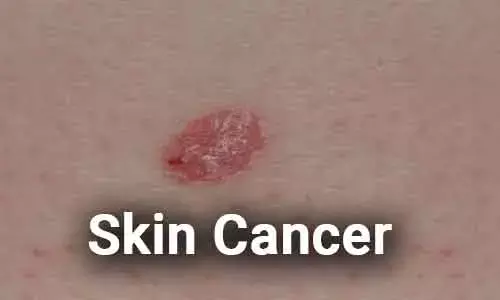- Home
- Medical news & Guidelines
- Anesthesiology
- Cardiology and CTVS
- Critical Care
- Dentistry
- Dermatology
- Diabetes and Endocrinology
- ENT
- Gastroenterology
- Medicine
- Nephrology
- Neurology
- Obstretics-Gynaecology
- Oncology
- Ophthalmology
- Orthopaedics
- Pediatrics-Neonatology
- Psychiatry
- Pulmonology
- Radiology
- Surgery
- Urology
- Laboratory Medicine
- Diet
- Nursing
- Paramedical
- Physiotherapy
- Health news
- Fact Check
- Bone Health Fact Check
- Brain Health Fact Check
- Cancer Related Fact Check
- Child Care Fact Check
- Dental and oral health fact check
- Diabetes and metabolic health fact check
- Diet and Nutrition Fact Check
- Eye and ENT Care Fact Check
- Fitness fact check
- Gut health fact check
- Heart health fact check
- Kidney health fact check
- Medical education fact check
- Men's health fact check
- Respiratory fact check
- Skin and hair care fact check
- Vaccine and Immunization fact check
- Women's health fact check
- AYUSH
- State News
- Andaman and Nicobar Islands
- Andhra Pradesh
- Arunachal Pradesh
- Assam
- Bihar
- Chandigarh
- Chattisgarh
- Dadra and Nagar Haveli
- Daman and Diu
- Delhi
- Goa
- Gujarat
- Haryana
- Himachal Pradesh
- Jammu & Kashmir
- Jharkhand
- Karnataka
- Kerala
- Ladakh
- Lakshadweep
- Madhya Pradesh
- Maharashtra
- Manipur
- Meghalaya
- Mizoram
- Nagaland
- Odisha
- Puducherry
- Punjab
- Rajasthan
- Sikkim
- Tamil Nadu
- Telangana
- Tripura
- Uttar Pradesh
- Uttrakhand
- West Bengal
- Medical Education
- Industry
Use of topical immunosuppressant ointments may not increase skin cancer risk: JAMA

BOSTON - Adults with the chronic skin condition atopic dermatitis can rest easy in the knowledge that two topical immunosuppressant medications commonly prescribed to treat the condition do not appear to increase the risk for the most common forms of skin cancer, despite package label warnings to the contrary, researchers from Massachusetts General Hospital (MGH) found.
Looking at data on nearly 94,000 people diagnosed with dermatitis in general or more specifically atopic dermatitis -- Maryam M. Asgari, MD, MPH, Professor of Dermatology at MGH and colleagues found that patients who were prescribed topical tacrolimus or pimecrolimus did not have a greater risk for either basal cell or squamous cell carcinomas compared with patients who received prescription topical corticosteroids, the most common topical treatment for dermatitis.
Their findings are published online in JAMA Dermatology.
Tacrolimus and pimecrolimus belong to a class of drugs known as topical calcineurin inhibitors (TCI). The US Food and Drug Administration (FDA) requires that TCI medications carry a "black box" warning about increased risk for skin cancer, although previously published studies have shown conflicting results regarding the use of TCIs and skin cancer risk. The FDA has mandated long-term studies of patients with atopic dermatitis who use these products to get a better handle on their potential for increasing skin cancer risk.
"I thought that the data implicating increased skin cancer risk with TCIs was not robust, and that prompted me to get involved in studying it " Asgari said.
The MGH researchers took advantage of the comprehensive database maintained by Kaiser Permanente Northern California in Oakland, which contains integrated pharmacy and pathology data on 93,746 adults age 40 and older who were diagnosed by a clinician with atopic dermatitis or dermatitis from January 2002 through December 2013.
Since nearly all Kaiser Permanente patients use the health plan's pharmacy, Asgari and colleagues were able to determine the proportions of patients who received prescriptions for TCIs vs. topical corticosteroids, and then compared those data with pathology-verified skin cancer diagnoses.
They found that there was no association between TCI use and risk for either keratinocyte carcinomas overall, or for squamous cell or basal cell carcinomas individually. Looking at different doses, frequency, and duration of TCI use did not change the findings.
"We analyzed the data with multiple sensitivity analyses to explore the association of TCI use and skin cancer risk in detail, which revealed no association each time, so that was very reassuring" Asgari says.
For more details click on the link: http://dx.
Hina Zahid Joined Medical Dialogue in 2017 with a passion to work as a Reporter. She coordinates with various national and international journals and association and covers all the stories related to Medical guidelines, Medical Journals, rare medical surgeries as well as all the updates in the medical field. Email: editorial@medicaldialogues.in. Contact no. 011-43720751
Dr Kamal Kant Kohli-MBBS, DTCD- a chest specialist with more than 30 years of practice and a flair for writing clinical articles, Dr Kamal Kant Kohli joined Medical Dialogues as a Chief Editor of Medical News. Besides writing articles, as an editor, he proofreads and verifies all the medical content published on Medical Dialogues including those coming from journals, studies,medical conferences,guidelines etc. Email: drkohli@medicaldialogues.in. Contact no. 011-43720751


